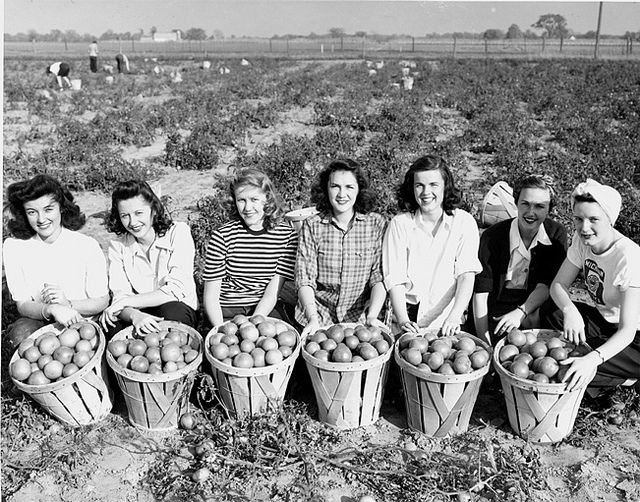For years I have been pondering the scenario of what would happen to seed
supplies if the whole world suddenly became food insecure and people all around
the globe started to grow food.
I could not imagine what would cause such an unlikelihood, yet today here we are seeing an unprecedented reaction to the COVID-19 pandemic, causing a return to the land and expansion of food gardening not seen since the Victory Gardens of World War 2.

This has caused sweeping demands in seed sales and food starts as folk who have never grown food plant
food gardens, and others switch their gardens to grow something they can eat.! As we transition towards a sustainable future, agriculture will once again be based on small-scale regional food production. To grow food plants adapted to ouclimate we will need open-pollinated seeds that have not been hybridized or tampered with genetically.
Farmers and gardeners are realizing that it’s a good idea to save seeds, and seed exchanges are being created within communities to meet the needs of an uncertain future.
Before starting I recommend that you obtain a copy of How To Save Your Own
Seeds from Seeds of Diversity www.seeds.ca For $15 it provides a worthwhile
guide to seed saving. In the meantime here are a few useful tips to help get you
started.
Benefits of Seed Saving
* You collect organic seeds from healthy plants adapted to your local growing
conditions.
* Seeds become adapted to the unique cultural conditions in your garden/farm, and
display greater vigour as a result.
* Fresh seed has the highest germination rate.
* Plants become available to you that may not be commercially available.
* Seed saving safeguards food security.
* Seed saving protects plant genetic diversity, which increases the plant’s ability to
adapt to rapidly changing environmental conditions.
Choose open-pollinated rather than hybrid seeds to guarantee that you get the same
plant year after year. Hybrids result from crossing two parent plants. If you save seeds
of hybrids the plants will not come true in the next generation. The resulting plant
may revert back to characteristics from one or the other of the parent plants, or display
an undesirable mix of both. Species of plants that have not been hybridized grow true
to the original plant.
Determine whether plants are self-pollinating or cross-pollinating. Plants such as
tomatoes, beans, peppers, lettuce and peas are self-pollinating. They have ‘perfect
flowers’, which means their flowers hold both male and female parts, so they can be
pollinated without the assistance of bees, insects or the wind to carry pollen. This
allows the gardener to grow different varieties in closer proximity to one another
without fear of them ‘outcrossing’.
Use isolation distances to be sure accidental crossing does not occur. Different tomato
varieties should be separated by a distance of 6 feet (30 feet if they are potato-leaf
varieties); different varieties of lettuce should be 10 feet apart; bush beans need to be
separated by 10 feet and pole beans by 30 feet. These are all self-pollinating vegetables.
Many plants, such as squashes, have ‘imperfect flowers’ which means each plant has
separate male and female flowers. Squash needs to be isolated by 1/4 mile to prevent
insects spreading pollen from the male flowers of one variety to the female flowers of
another variety. If you’ve ever had an unidentified squash volunteer in your garden it
was the result of cross-pollination between different varieties of squash grown there the
previous year.
Biennial crops, such as beets, carrots and cabbages, produce their edible crop in the
first year and set seed the following season. These crops need isolation distances of
1/4 mile to prevent cross-pollination. Carrots will cross with wild carrot, Queen
Anne’s Lace, if they are grown within 1/4 mile of each other. Brassicas, e.g. broccoli,
Brussels sprouts, cauliflower, collards, kale and kohlrabi must be separated by 1/4
mile to prevent cross-pollination.
Label seeds. For everything you collect identify the species and variety, record any
special features, and record data such as the place and date the seeds were collected.
Dry seeds thoroughly. Drying seeds thoroughly is critical before storing them in
sealed containers or envelopes. The larger the seeds, the longer they need to dry. Let
them dry in a warm area away from direct sunlight for two weeks.
Clean seeds before storing, Remove chaff and debris by sieving seeds through screens
of different-sized mesh. Winnow seeds in a light breeze to remove any tiny particles
or dust. I use a hairdryer on a cold setting to do this.
Tomatoes are cleaned by a wet process, where they undergo a fermentation process
for a few days, which eliminates seed-borne pathogens. Melons, squashes,
cucumbers, cape gooseberries and tomatillos are also cleaned using water, allowing
dead seeds to float to the surface and good seeds to sink to the bottom of the
container.
Store seeds in a cool dark area, away from fluctuations in light and moisture. The
ideal temperature for storage is 55°F (13°C). Paper envelopes or airtight containers
such as yoghurt tubs, work fine for seed storage. Keeping seeds in an airtight,
waterproof container in the fridge prolongs seed life, longer if you freeze them
more gradually.
 Carolyn Herriot is author of The Zero Mile Diet and The Zero Mile Diet Cookbook Available at your local bookstore.
Carolyn Herriot is author of The Zero Mile Diet and The Zero Mile Diet Cookbook Available at your local bookstore.
She grows IncrEdibles! in Yellow Point.
www.harbourpublishing.com/title/ZeroMileDiet
See all articles by Carolyn Herriot



